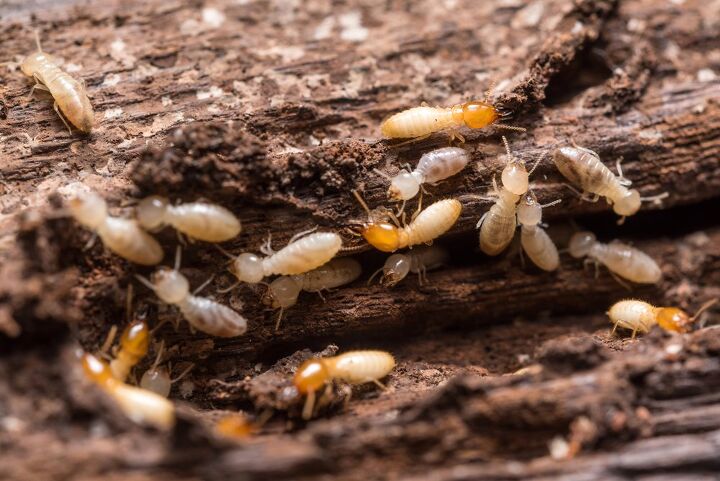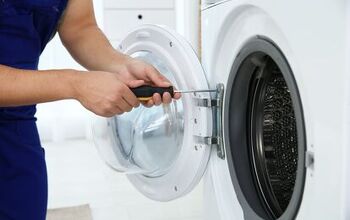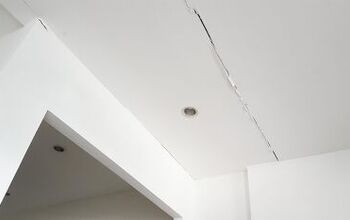Should I Renew My Termite Warranty? (Find Out Now!)

Owning a home can be a wonderful experience, but a costly one as well. When it comes to all the expenses in maintaining your home, it’s tempting to cut financial corners where you can. However, you should undoubtedly renew your termite warranty; it’s a smart investment in your home.
You should renew your termite warranty yearly to maintain the protection and coverage against termites. The benefit of a termite warranty is a yearly inspection from a licensed professional and a resource should issues arise. These inspections go a long way in early detection and save your home from costly damage from a termite infestation.
Do You Need Pest Control Services?
Get free, zero-commitment quotes from pro contractors near you.

Why Should I Renew My Termite Warranty?
Renewing your home’s termite warranty(also called a bond) is one of the best ways to prevent a termite infestation. If you let the warranty expire and try to reinstate it later, most likely, you’ll need another full inspection and treatment plan. Often, it is more affordable to pay the annual renewal rather than the higher cost of the initial plan.
With a termite warranty, a licensed professional will inspect and treat your home on a yearly basis. The treatments protect your home year long and help identify any early signs of termites. With termites causing billions of dollars of damage a year, early detection and prevention is your best form of defense.
Are There Different Types Of Termite Warranties?
While all termite warranties cover treatments should an infestation occur, some warranties do not cover repairs from termite damage. There are “retreatment” warranties and “retreat and repair” warranties. Knowing the type of termite warranty you have can help you better plan in case of an infestation.
Retreatment warranties only cover retreatment of affected areas and do not take damages into account. Whereas a “retreat and repair” warranty not only retreats affected areas, they also include the cost of repairs.
Is The Cost Of A Termite Warranty Worth It?
On average, a termite warranty costs $300 – $400 annually and includes a yearly inspection. Termites can cause a vast amount of damage very quickly, so treatments and repairs can cost thousands of dollars. When compared, the amount paid for prevention can save you money in the long run.
To repair the damage brought on by a termite infestation, the national average a U.S homeowner will pay in damages is $3,000. Statistics show that U.S residents spend approximately $5 billion annually on termite prevention and repairs.
How Much Damage Do Termites Cause?
Termite damage affects approximately 600,000 homes in the U.S every year. When a homeowner or inspector locates a termite infestation, it can be difficult to determine how long the colony has been there. The amount and severity of the damage depend on the species of termite and the type and condition of the wood.
For example, Formosan termites are more aggressive than most termite species. Formosan termite colonies are usually larger and can cause damage at a faster rate. If a Formosan termite infestation goes unnoticed, it can take approximately two years to cause significant amounts of damage.
Does Homeowners Insurance Cover Termite Damage?
Because pests and the damage they cause are typically the homeowner’s responsibility, insurance will not cover it. Insurance is there to cover sudden catastrophic events, and policies consider an infestation a preventable event. That leaves the cost for repairs on the shoulders of the homeowner.
What Is The Difference Between A Termite Warranty And A Termite Letter?
A termite warranty is an ongoing maintenance contract in termite prevention for your home. If you should sell your home, most termite warranties are transferable to the next homeowner. However, letters simply state that the house was termite-free at the time of inspection.
Letters are only good for 30 days and are only helpful in selling homes. A letter does not cover damages or plans in case of an infestation.
Am I Required To Have A Termite Warranty?
Most states do not require you to have a termite warranty. However, if you are planning on selling your home, most potential buyers will request one. You can also transfer termite warranties to the new owners to prevent a lapse in coverage.
Before finalizing the sale of the home, there will be many inspections, including a termite inspection. Often, if the house already has a current termite warranty, you can skip the termite inspection. Should any concerns about termites happen during the selling process, the company associated with the warranty can address them immediately.
What Can I Do To Prevent Termites?
A warranty and yearly inspections are some of the strongest forms of prevention. There are also simple things you can do yourself to protect your home from termites. For example, try making a 4-inch barrier between mulch and your home.
Moisture is a termite’s favored environment. Minimizing moisture around your home’s foundation goes a long way in preventing termites. Be sure that storm drains are clear and direct condensation from air conditioners and dryers away from the foundation.
To make your home less attractive to termites, limit their food sources. Keep cellulose-based materials, such as rotting wood and old lumber, away from your home. When storing firewood, move it 20 feet away and elevate it at least 8 inches from the ground.
Look for any gaps or cracks in your home’s foundation that you will need to seal. Check pipes that have rust or moisture for cracks or leaks. Any excess moisture from a leaking pipe is an ideal environment for termites.
Also, check around water and gas lines for any gaps that you might need to seal. Use a caulk or foam sealant. For your home’s foundation, use cement or a concrete patching compound.
Signs Of Termites
Having a termite warranty that guarantees a yearly inspection and preventive treatments can help bring you peace of mind. However, termites can live on your property for some time before you detect them. Looking for signs of termites throughout the year can help catch the problem early.
Here are some issues to look out for. Drooping or discolored drywall, peeling paint resembling water damage, hollow-sounding wood, and small pinpoint holes in the drywall. Other signs to watch out for include crumbling wood, excessively creaky floors, and stuck doors or windows.
There are some more extreme signs to watch out for as well. Piles of swarmer wings, termite droppings(resembling small piles of salt and pepper), and mud tubes climbing the home’s foundation. However, by the time you notice these signs, termites have likely lived in your home for months or even years.
If you find any of these warning signs, call your pest control company right away to prevent further damage. This is why having a licensed termite professional do yearly inspections is so important. They have the training to find signs that may be less obvious and can prevent further issues.
Can I Treat Termites Myself?
There are some effective products that you can find at most home improvement stores. However, these treatments only work temporarily compared to the treatments professionals use. Professional termite treatments are stronger and last all year long.
If you suspect that you have termites in your home, your best bet is to call a professional. Not addressing the problem thoroughly can have dire consequences for you and your home.
Do You Need Pest Control Services?
Get free, zero-commitment quotes from pro contractors near you.

Related Questions
Are termites dormant during the winter?
Termites are active all year long, even in the winter, but not as much as during the warmer months. Subterranean termites will go further underground seeking warmth, and worker termites will stay closer to their nests in the winter. So while termite actively is slowed, it’s not dormant.
Are termites harmful to humans?
Termites typically do not carry any diseases that are harmful to humans. However, living in an infested home can cause those with allergies or asthma to have bad reactions. Some people may be allergic to termite saliva and droppings.

Stacy Randall is a wife, mother, and freelance writer from NOLA that has always had a love for DIY projects, home organization, and making spaces beautiful. Together with her husband, she has been spending the last several years lovingly renovating her grandparent's former home, making it their own and learning a lot about life along the way.
More by Stacy Randall



























